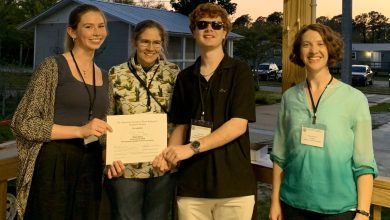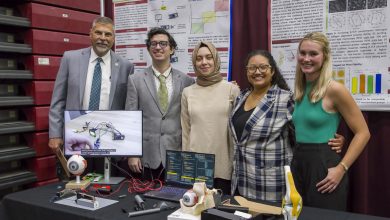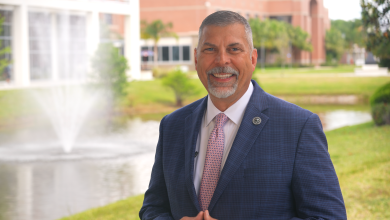Funding graduate research is worth taxpayer dollars
…and I’m going to Washington to prove it!
by “Ben” Judson Locke, B.S. Physics ‘11
Who am I?
I’m Judson Locke—most people know me as Ben. I’m originally from Gulf Shores, Alabama. I graduated from Florida Tech in December 2011 with a B.S. in physics. Just before I graduated, I got a job at Harris here in Melbourne as a software engineer, and this is what I have been doing since January 2012.
What is this all about?
In late April this year, I am going to Washington, D.C., to present research I participated in while I was an undergrad. My advisor, Dr. Marcus Hohlmann, and a grad student I worked with, Mike Staib, will accompany me. I submitted an abstract to Posters on the Hill—a program run by the Council of Undergraduate Research which puts undergrads in front of congressmen and their staff to show that funding undergraduate research is worth taxpayers’ dollars. We were selected to present at this poster session from a pool of about 800 applicants across the U.S. It’s quite an honor.
How did I get here?
I started working in Dr. Hohlmann’s high energy physics (HEP) lab when I was a sophomore and continued to work there until I graduated. Even as a sophomore, I was immediately put into research (and I mean real research: testing hypotheses, producing data, trying new things, etc.) because I could code. I couldn’t code particularly well, mind you, but I could write a working program, and this is all it takes when you’re first getting started. Our research focused on using subatomic particles (muons) produced in the upper atmosphere to detect hidden nuclear material in cargo containers being smuggled into the country by terrorists who intend to build nuclear or dirty bombs. This system is called “muon tomography.” The idea of muon tomography is not ours: we contributed to the field by introducing very precise particle detector technology. Through the three years I worked in the HEP lab, we went from computer simulations to actually building the physical system and imaging uranium. This success and the project’s direct applicability to homeland security led to getting this project selected for Posters on the Hill.
What am I doing now to prepare for the event?
Right now, Dr. Hohlmann and I are working on the administrative details of making this happen: hotel, plane tickets, the poster, arranging meetings with congressional staff, etc. It is a lot to do, but it will be worth it. I am looking forward to talking to people who make decisions on where the money goes. Hopefully we can show that academic research is not a luxury, but an essential part of keeping the U.S. on the cutting edge of technology. After we go to the event, I will post a follow-up detailing what actually happened in D.C. So stay tuned.





